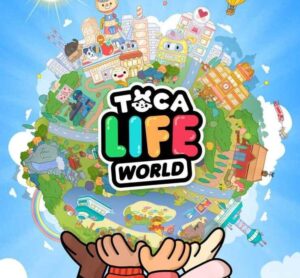Electronic Arts Taken Private in Historic $55 Billion Leveraged Buyout
Popular Now
 Candy Crush Saga
Candy Crush Saga
 R.E.P.O
R.E.P.O
 Valorant
Valorant
 God of War Ragnarök
God of War Ragnarök
 Minecraft
Minecraft
 Counter-Strike 2
Counter-Strike 2
 Grand Theft Auto V
Grand Theft Auto V
 Stumble Guys
Stumble Guys
 Auto X Drift Racing 3
Auto X Drift Racing 3
 Brawl Stars
Brawl Stars
 In a seismic shift for the video game industry, Electronic Arts (EA), the veteran publisher of major franchises like Madden NFL, The Sims, and Battlefield, has officially agreed to be acquired and taken private in a massive all-cash deal. The transaction, valued at approximately $55 billion, represents one of the largest leveraged buyouts (LBOs) in corporate history, surpassing the $32 billion privatization of Texas utility TXU in 2007.
In a seismic shift for the video game industry, Electronic Arts (EA), the veteran publisher of major franchises like Madden NFL, The Sims, and Battlefield, has officially agreed to be acquired and taken private in a massive all-cash deal. The transaction, valued at approximately $55 billion, represents one of the largest leveraged buyouts (LBOs) in corporate history, surpassing the $32 billion privatization of Texas utility TXU in 2007.
The investor consortium driving this unprecedented move comprises three formidable entities: the sovereign wealth fund of Saudi Arabia, the Public Investment Fund (PIF); the U.S. private equity powerhouse Silver Lake; and Affinity Partners, the firm established by Jared Kushner. Under the terms of the agreement, EA stockholders will receive $210 per share in cash, a significant premium that has paved the way for the company to end its 36-year run as a publicly traded entity once the deal closes, which is expected by early 2027.
The Electronic Arts Buyout Debt Crisis: A $20 Billion Burden
What makes this record-breaking acquisition a source of profound concern for industry analysts and employees is its heavily leveraged financial structure. The total purchase price includes a staggering $20 billion in committed debt financing, primarily arranged by JPMorgan Chase. In an LBO, this debt is typically loaded onto the acquired company’s balance sheet, meaning the “new” private EA will immediately be responsible for servicing this massive financial obligation—a sharp contrast to the publisher’s historically limited net debt.
Financial experts have already flagged this debt package, with reports suggesting the financing may be rated single-B, a classification considered “junk” or high-risk. This high-risk debt carries a correspondingly high interest rate, placing enormous pressure on the new ownership to generate increased profits and significantly cut operating costs, and to do so quickly. As one analyst noted, the financial mathematics of the deal only work if a substantial increase in profit margin can be realized rapidly.
 The Future of EA: Efficiency, Monetization, and the Shadow of Layoffs
The Future of EA: Efficiency, Monetization, and the Shadow of Layoffs
The move to private ownership is often pitched as a way to escape the short-term pressures of public markets, allowing for bolder, long-term strategic investments. However, in an LBO of this scale, the immediate reality is usually an intense focus on “streamlining” operations to meet the debt service requirements. This has led to widespread apprehension among EA’s global workforce across studios like BioWare, DICE, and Respawn Entertainment.
The potential cost-cutting levers being explored by the new owners include:
- Aggressive Use of Generative AI: Insiders claim the consortium is making a massive bet on AI tools to “significantly cut operating costs” across game development. This could involve automating asset creation, quality assurance, and even voice acting, a move that directly threatens creative and technical roles.
- Increased Monetization: Financial pressure can lead to more aggressive monetization strategies in live service games, such as EA Sports FC and Apex Legends, pushing for more microtransactions and battle passes to maximize immediate cash flow.
- Studio Consolidation and Asset Sales: Veterans of the industry have warned that the debt could necessitate selling off valuable, non-core studios or dormant intellectual properties to generate the billions needed for debt repayment, a classic private equity playbook move.
While EA’s internal communications to employees assure them of “no immediate changes” to jobs or teams, the history of major leveraged buyouts suggests that subsequent restructuring and layoffs are an inevitable part of the cost-cutting process designed to maximize returns for the new investors.
Uncertainty Ahead for the Gaming Landscape
The PIF Silver Lake Affinity Partners acquisition is a watershed moment in the recent wave of Gaming Industry Consolidation. It signals a new phase where massive debt financing is being utilized to acquire legacy publishers, fundamentally changing their financial mandates. For gamers, the question remains whether the push for “efficiency” driven by the high-risk debt will translate into innovative, high-quality titles or a homogenization of creativity in favor of safer, more monetizable content.
The successful integration of AI and the management of the $20 billion debt will be the defining narrative of EA’s future as a private company, a financial experiment that has the potential to either revolutionize game production or severely destabilize one of the industry’s cornerstones.







